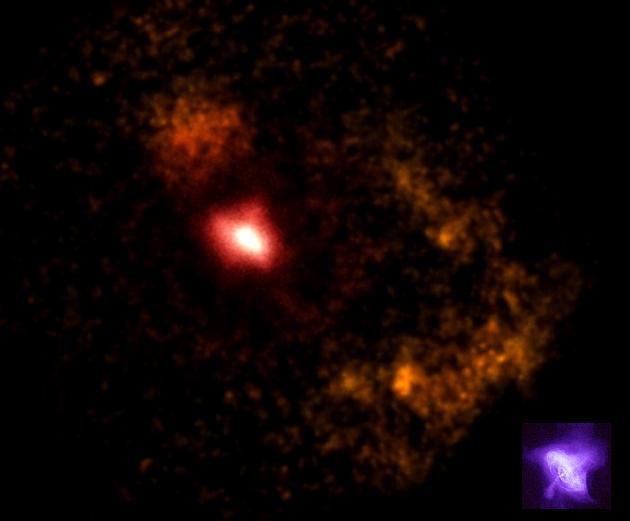
 Credit: NASA/CXC/SAO
Credit: NASA/CXC/SAO
A Mate for the Crab?
Pulsars are rapidly spinning neutron stars produced by the explosion of a
star as a supernova. They are incredibly dense (packing about one solar
mass into a sphere of radius of about 10 kilometers) and may possess strong
magnetic fields which can produce high energy particles and high energy
radiation. The Crab
Pulsar is the best studied pulsar, and much of what astronomers know
about pulsars is based on studies of the crab. Now astronomers have
detected a crab-like pulsar in the Large Magellanic Cloud, a companion
galaxy to the Milky Way. The Chandra High Resolution
Camera has obtained an X-ray of the nebula around the pulsar. This
nebula, which appears as the bright elongated patch at the left center of
the image, is energized by the strong magnetic field and energetic
particles produced by the pulsar. For comparison the inset on the lower
right shows the Chandra image of the Crab pulsar and its nebula.
Last Week *
HEA Dictionary * Archive
* Search HEAPOW
* Education
Each week the HEASARC
brings you new, exciting and beautiful images from X-ray and Gamma ray
astronomy. Check back each week and be sure to check out the HEAPOW archive!
Page Author: Dr. Michael F.
Corcoran
Last modified February 25, 2001


